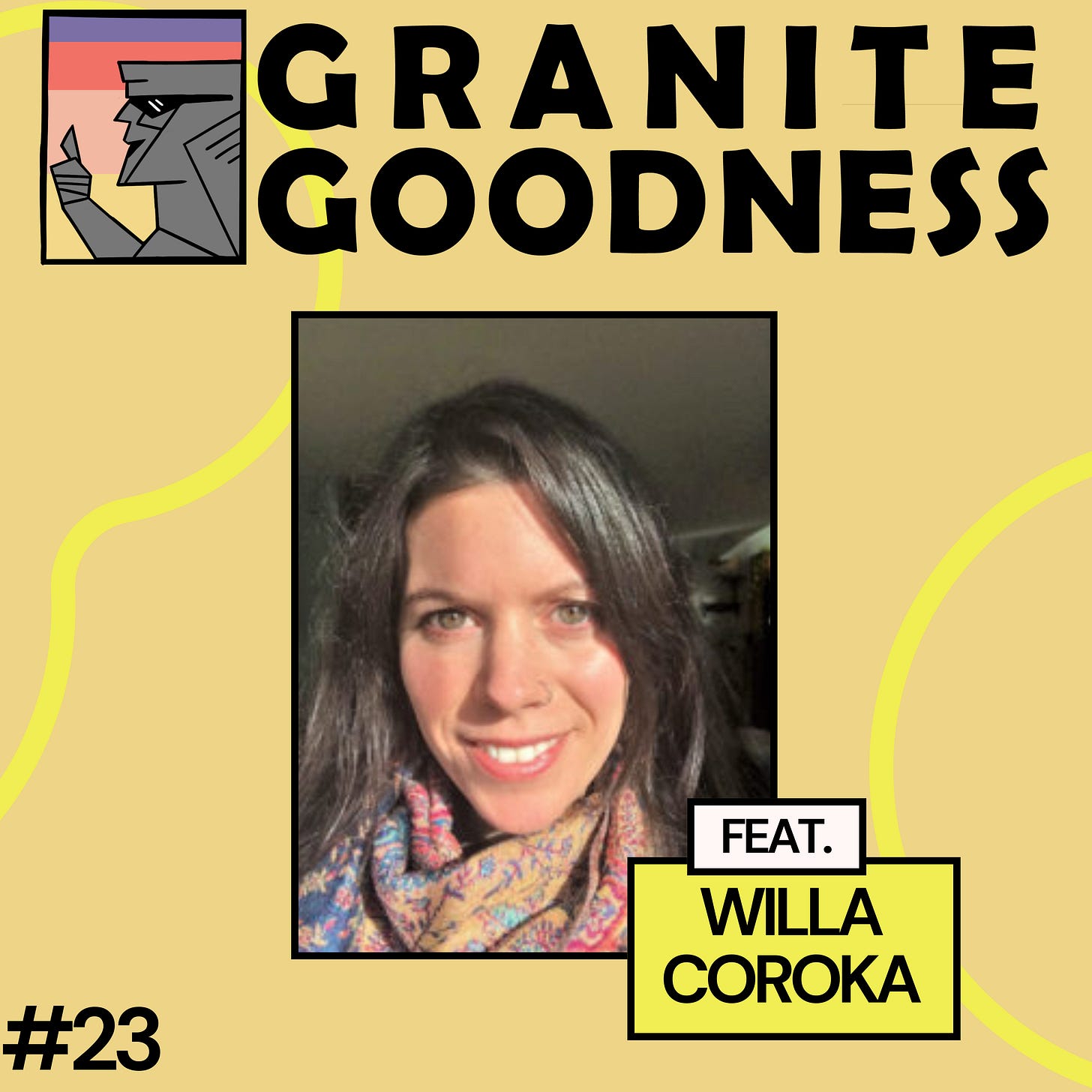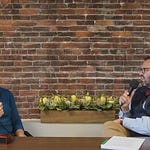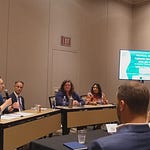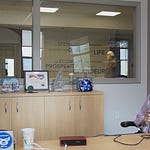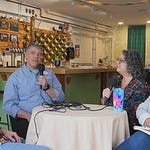On episode 23 of Granite Goodness, Andy talks to Willa Coroka (“Sir-Oh-Ka”), who helps him understand that while there are no gorillas in New Hampshire, there is a wide diversity of fascinating, charismatic, and complex wildlife. The two discuss:
Willa’s New Hampshire Roots: Willa, a New Hampshire native, has a deep connection to nature and wildlife that developed from her childhood experiences in Hudson and her love for the Granite State.
Role at New Hampshire Audubon: As a project implementation specialist, Willa oversees education-focused conservation projects, including pollinator gardens in urban areas, funded by local conservation efforts like the Moose Plate program.
Educational Approach: Willa emphasizes hands-on, immersive experiences that encourage both children and adults to engage with nature, fostering curiosity and conservation values.
Community Involvement: Through projects like the pollinator gardens, Willa involves volunteers, students, and community members, showing them how small changes in urban spaces can make a big difference for local wildlife and contribute to conservation awareness.
Willa’s Passion for Conservation: Willa advocates for reconnecting people to nature by creating environments that support wildlife, believing that fostering an emotional connection to the environment is key to effective conservation.
and more!
Willa Coroka is a Project Implementation Specialist at New Hampshire Audubon. The mission of New Hampshire Audubon is “to protect New Hampshire’s natural environment for wildlife and for people.”
Links & Notes:
Instagram:
Linkedin:
AI Generated Episode Summary*
How did your connection to New Hampshire and nature start?
Growing up in Hudson, New Hampshire, I was surrounded by places like Benson’s Park, where I first encountered wildlife. Over the years, I’ve traveled extensively, but I always feel the draw to come back to New Hampshire. It’s home in the truest sense, and I want to help preserve what makes it so special.
What led you to work with New Hampshire Audubon?
I always loved nature, but I didn’t realize how much it was part of me until I started teaching kindergarten and incorporating nature into my curriculum. I eventually went on to New Hampshire Audubon, where I get to combine my love for education and the environment, creating programs and gardens that bring conservation to the community.
Can you explain your role at New Hampshire Audubon?
I’m a project implementation specialist, which means I coordinate and execute education-focused projects, funded by grants and local initiatives like the Moose Plate program. My work often involves creating spaces that support wildlife and allow people to experience nature directly.
What kind of projects are you working on?
One of our recent projects is establishing pollinator gardens in urban areas of Manchester. These gardens are designed to attract native pollinators, like bees and butterflies, and offer a green space for people to connect with nature. The response has been amazing—pollinators show up within hours, and it feels magical to watch it happen.
How do you feel about the popularity of honeybees versus native pollinators?
While honeybees are wonderful, they’re not native to North America. I encourage people to focus on supporting our native pollinators, like sweat bees and minor bees, which play essential roles in local ecosystems. Native plants support these insects and, in turn, the larger food web.
What’s your approach to educating the public about conservation?
I like to get people, especially kids, immersed in nature. I encourage them to observe quietly, to listen, and to be present. I believe that when people slow down and connect to the natural world around them, they start to develop a genuine curiosity and love for conservation.
How does urban gardening benefit both pollinators and people?
These gardens not only provide food sources for pollinators but also offer peaceful spaces for people to relax and reconnect with nature, even in a busy city. We see people’s stress levels drop and their curiosity increase as they explore these spaces, which is very rewarding.
How has your past experience shaped your work today?
I used to work in landscaping, and while it wasn’t my original plan, it taught me a lot about garden design and project management. Now, I apply those skills to create gardens that support biodiversity, and I’m grateful for those seemingly unrelated experiences that brought me here.
What’s your biggest hope for your work?
I hope to foster a lasting connection between people and nature. If we can create places where people feel relaxed, curious, and connected to the environment, I think we can inspire them to care for it in meaningful ways, whether that’s through supporting conservation projects or making eco-friendly choices.
What advice would you give to people wanting to support conservation?
Start by connecting to your surroundings. Learn about native plants, support local pollinators, and, most importantly, immerse yourself in nature. Conservation begins with a personal connection to the world around us, and once you have that, everything else will follow.
*This episode summary was generated by an AI analyzing a transcript of the interview. The questions, wording, and written meaning of particular sections may contain slight differences to the original conversation. We include these summaries to give listeners a brief, readable synopsis of the episode. The full episode transcript is available on granitegoodness.com.



